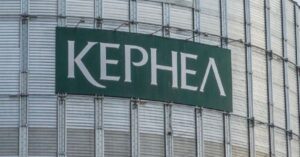
Kyiv, July 31, 2025 — The Parkovy Exhibition and Convention Center will host the main professional event of the summer — the III Ukraine Investment Congress and the 15th anniversary All-Ukrainian architectural competition Interior of the Year 2025.
The main goal of the event is to create a space for gathering knowledge, ideas, trends, and practices in the fields of investment, architecture, and urban development. The event is aimed at investors, politicians, builders, developers, representatives of large and medium-sized businesses, banks, international investment programs, architects, designers, urban planners, and analysts.
For each of these audiences, the event is a unique opportunity to:
• see real projects and sources of financing;
• establish contacts with government and private entities;
• find partners for strategic projects;
• obtain first-hand information from leading experts;
• be part of a professional community shaping the future.
The main idea behind this year’s Congress is to systematize and collect key information from the investment, development, architecture, and design sectors, making it available for further study, reflection, and analysis by anyone interested. For three years in a row, we have been creating an open database of materials — from speaker abstracts to photo reports and presentations — that allows everyone to form their own vision of the processes that are transforming the market.
Participants can expect a day of intensive exchange of ideas, real-life case studies, strategic presentations, and lively networking in 12 themed rooms. Speakers expected to attend include:
Igor Guda, founder of Kreator-Bud; Sergey Samusev, conceptualist, visionary in the construction industry, and founder of HutJet; Vitaliy Kindarev, Deputy Minister of Economy of Ukraine; Vitaliy Koval, Minister of Agrarian Policy and Food of Ukraine; Oksana Osmachko, Deputy Minister of Agrarian Policy and Food of Ukraine; Andriy Vavrysh, founder of Saga Development; Boris Goldenstein – CEO of ZEZMAN HOLDING, Rostislav Melnik – CEO of RIEL, Vitaliy Melnyk – Vice President of UDP, Head of Innovative Parks Development, Alexander Lakhionov – Founder and CEO of RITM Group, expert in the development of real estate and investment projects, Mark Kestelboim – CEO of WELL-BEING CONTECH, BUDOVA, Igor Didyk – Co-founder of Dzen Residence and AI Development, Ivan Shchebetun – Founder of the development company Unit Development, Andriy Dligach – Doctor of Economics, Chairman of Advanter Group, Chairman of the Council of the Coalition of Business Communities for the Modernization of Ukraine. Founder of the international business community BOARD.
Main topics of the congress:
INVESTMENT
• Presentation of investment projects for 2025–2026
• New sources of capital for regional construction
• Mechanisms for institutional investor participation
DEVELOPMENT
• New challenges for developers: regulation, market, demand
• Spatial planning for the future
• Transformation of urban infrastructure
ARCHITECTURE
• Interior of the Year 2025 competition: 600+ works by Ukrainian architects
• Live case presentations
• Author sessions from renowned studios and designers
GOVERNMENT AND POLITICS
• Participation of representatives of the Government, the Ministry of Reconstruction, and the State Agency for Investment and National Project Monitoring
• Discussions on investment support tools and the licensing system
CONTENT AND NETWORKING
• 300+ speakers, 60 exhibition stands, 50 panel sessions
• Post-conference materials available to the public: abstracts, presentations, photo reports, post-releases
• Formation of long-term partnerships
“The Congress is a tool for strategic focus. We don’t just organize an event, we create content. Our approach is to gather the most important information from the market, structure it, and give it back to the community in the form of analytical heritage. This is our responsibility and our strength,” comments Igor Parubsky, head of the Ukraine Investment Congress.
The event aims to provide a systematic picture of the transformations taking place in Ukraine’s investment ecosystem. The DMNTR platform openly publishes materials after each event — speaker abstracts, presentations, photo reports, post-releases — so that everyone can form their own analytical vision based on reliable and verified sources.
Registration and program details are available on the website: www.uic-ua.info
Media contacts:
Anastasia Konstantinova, Marketing/PR Manager:
nastakonstantinova586@gmail.com | +38 099 124 65 67 | www.t.me/nk_gogh
Organizer: DMNTR Media Group
About us:
DMNTR Media Group is a team with 25 years of experience in organizing professional events for the architecture, construction, and investment audiences. Our key projects include the Ukrainian Construction Congress, Ukraine Investment Congress, All-Ukrainian Interior of the Year competition,
Ukraine Urban Awards, and the Creator of the Year architecture and development award. We also publish the leading architecture and design magazine DMNTR and actively develop social media, where we publish daily insights, news, reports, and photo reports from all our events.
Follow us:
Instagram: www.instagram.com/ukrainian_building_congress
Facebook: www.facebook.com/share/16RUuTVCQ1

“Kernel, one of Ukraine’s largest agricultural holdings, posted $682 million in gross profit in fiscal year (FY) 2024, up 7% from FY 2023.
According to the annual report published on the company’s website, Kernel earned $3.581 billion in revenue last fiscal year, up 4% year-on-year.
“This growth was driven by increased sales volumes across all key products – grain, sunflower oil and sunflower meal – due to the reopening of exports to Ukrainian Black Sea ports in mid-October 2023. This growth was partially offset by lower realized prices. Cargo transportation and other services reached a record high of $405 million, accounting for 11% of total revenue. Export sales accounted for 94% of total revenue,” the report says.
At the same time, Kernel recognized a loss of $10 million from changes in the fair value of biological assets and agricultural products in FY2024, compared to a loss of $115 million in FY2023.
The cost of sales in FY2024 increased by 7% year-on-year to $2.889 billion, driven by a 7% year-on-year increase in the cost of goods for resale and raw materials used, as well as a 7% increase in shipping and handling costs, the company explained.
At the same time, Kernel estimated losses from property damage and business interruption due to Russia’s war against Ukraine at $71 million, up 33% year-on-year, and reported that it received a one-time insurance payment of $34 million.
In FY2024, the agricultural holding received $9 million in profit from securities transactions (including Avere trading), inventory income, foreign currency gains, and income from contract termination.
In FY2024, Kernel’s other operating expenses amounted to $23 million, down 34% year-on-year. This included $17 million of shipping and other penalties (due to long waiting times for loading and unloading vessels in ports) and a $5 million loss from the Group’s securities and derivatives operations.
The agroholding increased salaries and related expenses by 24%, or $81 million. As a result, general and administrative expenses in FY2024 increased by 4% year-on-year to $213 million, mainly due to higher salaries and related expenses.
In addition, Kernel recognized net impairment losses on financial assets of $11 million, which reflects the provisions made for receivables and loans to third parties.
The agroholding also recorded a loss of $229 million in FY2024 due to impairment of property, plant and equipment ($117 million), impairment of goodwill related to two oilseed processing plants previously acquired by Kernel ($58 million), and impairment of intangible assets related to the port transshipment business ($24 million).
In addition, the agricultural holding mentioned the impairment of prepayments to suppliers and other current assets ($6 million), the write-off of assets destroyed by Russian shelling ($14 million), etc.
As a result, Kernel’s operating profit in FY2024 decreased by 37% compared to the same period in FY2023 to $276 million.
Financial expenses in FY2024 decreased by 22% year-on-year to $119 million, driven by a significant repayment of the group’s bank loans in December 2023 and a decrease in lease payments following the sale of a part of the agricultural business in March 2023.
Financial income in FY2024 increased by 62% year-on-year to $50 million, mainly due to interest accrued on financial assets held for cash management as additional liquidity balances were allocated to interest-bearing instruments. This also included a non-cash gain of $6 million on the repayment of certain credit facilities at a discount.
As a result, net financial expenses decreased by 43% year-on-year to $69 million.
Net foreign exchange gain amounted to $33 million, mainly due to the devaluation of the Ukrainian hryvnia against the US dollar during the reporting period and the corresponding revaluation of intra-group balances.
Other expenses, net, increased 2.5 times year-on-year to $29 million. Among them, the agricultural holding mentioned expenses for charitable and social projects of $25 million, fines and penalties of $6 million, as well as $2 million of profit from the sale of subsidiaries, as the Group completed the sale of three floor-type granaries in FY2024.
The Group reported operating profit of $604 million before working capital changes, down 20% year-on-year. This was 59% higher than EBITDA for the period, reflecting the impact of significant non-cash items recognized during the year.
After accounting for foreign currency translation differences, total comprehensive income attributable to shareholders in FY2024 amounted to $63 million, up 7% year-on-year.
The Board of Directors has recommended to the General Meeting of Shareholders to declare dividends of zero for the year ended June 30, 2024.
Before the war, Kernel Agro Holding was the world’s leading producer of sunflower oil (about 7% of global production) and its exports (about 12%). It is one of the largest producers and sellers of bottled oil in Ukraine. In addition, it is engaged in the cultivation and sale of agricultural products.

Ukrainian sports media outlet Tribuna.com, which currently has more than 12 million monthly users, has announced the launch of a global football platform in six international languages – English, Spanish, German, French, Italian and Arabic – and has an ambition to quadruple the number of users.
“Our ambition is 50 million monthly users worldwide,” Tribuna.com co-founder Maxim Berezinsky told Interfax-Ukraine.
According to him, this is a long-term goal that requires a strong team.
“In particular, to work with the international platform, we actively engage native speakers who understand not only the language but also the local context. For example, the Arabic-language version of Tribuna is overseen by the former editor of Manchester City’s Arabic website,” Berezinsky said.
He emphasized that the development of the existing Ukrainian team is supported in parallel, and the task of the resource in Ukraine remains unchanged – to remain the leading sports media.
“Of course, most users of the international versions come to us to read about their favorite team or find out the score of an exotic match. But we consider it our task and duty to also talk about the Ukrainian context and are consciously developing this area on our foreign-language versions,” Berezinsky said.
The co-founder of Tribuna.com added that the resource disseminates information about the destruction of Ukrainian sports facilities by Russia, as well as promotes famous Ukrainian athletes, such as football player Oleksandr Zinchenko, high jumper Yaroslava Maguchikh, fencer Olga Harlan or boxer Oleksandr Usyk.
He also announced plans to expand the use of artificial intelligence (AI) and implement specific AI projects in the near future.
Tribuna.com was founded over 10 years ago by Dmitry Navosha and Maxim Berezinsky. Currently, in addition to the international website, the company also promotes the Football Xtra app, which tries to combine media, football fan communities, and a sports statistics service covering more than 600 tournaments in 160 countries. In addition, the publisher’s products also include 12 mobile applications for iOS and Android, created for fans of the world’s leading football clubs, from Barcelona to Juventus.
According to YouControl, Belarusian citizens Navosha and Berezinsky own 85% to 15% of Sport Segodnya LLC. Last year, the revenue of the company headed by Berezinsky increased to UAH 15.44 million from UAH 9.92 million in 2023, and the net loss amounted to UAH 1.23 million against UAH 5.22 million of net profit a year earlier.
In addition, according to YouControl, Berezinsky has a historical connection with Tribuna Digital LLC, where he was a co-owner. Now this company, which last year received 6.42 million hryvnias in revenue with a net loss of 3.16 million hryvnias, is owned by its director Oleksiy Simchenko.
The Tribuna.com website lists the contacts of the Cyprus-based Tribuna Trading LTD, which was registered in 2016 and has Navosha as one of its directors.

The processing of alternative oilseeds in the new season may increase in case of signing the bill containing “soybean-rape amendments”, but not significantly, with the processing of rapeseed amounting to 500-550 thsd tonnes, soybeans – 2.7 mln tonnes, sunflower – 13.6-13.8 mln tonnes, APK-Inform news agency reported.
“Indeed, the export duty for soybean and rapeseed may make the domestic prices for oilseeds more attractive for the processing companies, but there are a number of factors that may limit the processing volumes, including the expected lower harvest of alternative oilseeds and higher harvest of sunflower, as well as the existing difficulties with the sale of the processed products,” – the analysts explained.
According to the experts, the potential of rapeseed harvest in Ukraine is decreasing as the harvesting campaign progresses, as it shows much lower yields than expected. Currently, APK-Inform estimates the gross harvest of this crop at about 3 mln tonnes (-18% compared to 2024/25 MY).
At the same time, the competition in this sector between exporters and processors will remain high even with the export duty, as a number of companies already have the obligations under the foreign economic contracts, and the supply of raw materials from farmers remains low, which will support the prices of rapeseed, while the prices of rapeseed oil are still under pressure due to the oil market conditions and the increase of oilseed production in the EU.
“Our estimate of rapeseed processing in Ukraine in 2025/26 season does not exceed 500-550 thsd tonnes (as compared to the previous season). At the same time, if the margin prospects in this sector improve, we may revise the estimate upwards,” the analysts predict.
The prospects of the soybean sector, in their opinion, are also ambiguous.
The area of soybean planting in 2025 turned out to be bigger than forecasted, but according to APK-Inform, the harvest is unlikely to exceed the previous year’s figure and, given the growth of the yield potential, is expected to reach 6.3 mln tonnes (-8%). However, this could be one of the largest figures for the industry, which could have a corresponding impact on prices and keep it attractive for processors.
In the new season, subject to the export duty on soybeans, the processing of soybeans may reach 2.7 mln tonnes (+3%) and become a new record for the industry.
Another important factor will be the amount of sunflower harvested and the margin of its processing.
“It is expected that the production of this oilseed may grow by 8% to about 14 mln tonnes, and the crushing – to 13.6-13.8 mln tonnes, which may slightly reduce the interest of large mills to alternative oilseeds,” APK-Inform summarized.

Ukrainian President Volodymyr Zelensky has appointed Olga Selikh as Ukraine’s ambassador extraordinary and plenipotentiary to the Sultanate of Oman. The relevant decree No. 531/2025 has been published on the website of the head of state.
Olga Selikh has many years of diplomatic experience working in the Ukrainian Ministry of Foreign Affairs. She has held various positions in the central office of the Ministry of Foreign Affairs and diplomatic missions abroad. Until recently, she worked in one of the departments of the Ministry of Foreign Affairs responsible for the Middle East and North Africa.
The Sultanate of Oman officially established diplomatic relations with Ukraine in 1992. The Ukrainian Embassy in Muscat began its work in 2018. Bilateral cooperation is developing in the fields of trade, education, agriculture, and energy. Oman remains one of Ukraine’s key partners in the Persian Gulf region.
The appointment of a new ambassador to Muscat reflects Ukraine’s desire to intensify bilateral ties and expand its economic and political presence in the region.

On Tuesday, the Minister of Defense of Ukraine Denys Shmyhal announced that three manufacturers have received state contracts for the production of interceptor drones.
“The state is developing the market of Ukrainian interceptor drones. Yesterday, three manufacturers received state contracts. In total, we already have four contracts worth more than UAH 3 billion. We will continue to scale these technologies,” he wrote on Facebook on Wednesday.
Shmyhal also said that he and First Deputy Prime Minister Mykhailo Fedorov met with representatives of the Brave1 state defense innovation cluster, the team of the Ministry of Digital Transformation, drone manufacturers, and Ukraine’s largest volunteer foundations.
“We focused on providing drones to our soldiers on the front line. Much attention was paid to interceptor drones, which are capable of countering Russian “shaheds”. The President has set a task to develop this area. We have already signed four state contracts with manufacturers. This week, we also talked to large state-owned banks about lending to manufacturers under state guarantees,” the minister said.
In addition, according to Shmyhal, the Ministry of Defense is negotiating with partners to raise funding for the purchase of such interceptors, and the first agreements have already been reached.